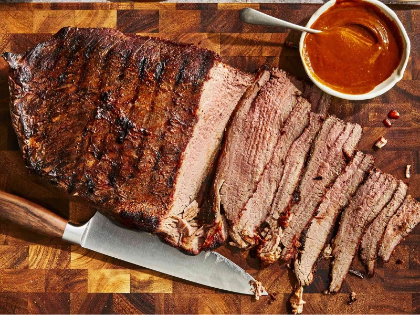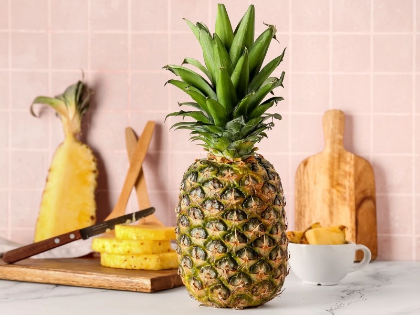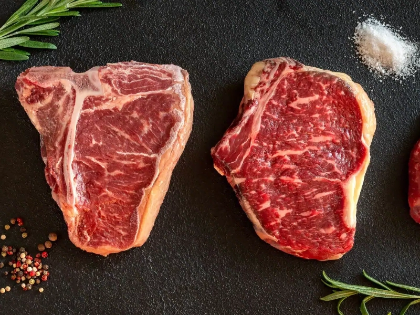The Impact of Vitamin D on Hair Growth and Health
1. The Importance of Vitamin D

2. How Vitamin D Affects Hair Follicles
 Particularly in the anagen—growth—phase, vitamin D is well-known to affect the hair development cycle. It encourages the spread of keratinocytes, the cells in charge of building hair follicles and the outer layer of the skin. Adequate quantities of vitamin D allow these cells to operate as they should, therefore promoting normal hair development. On the other hand, a lack of vitamin D might throw off this process and produce thinner hair follicles and perhaps hair loss.
Particularly in the anagen—growth—phase, vitamin D is well-known to affect the hair development cycle. It encourages the spread of keratinocytes, the cells in charge of building hair follicles and the outer layer of the skin. Adequate quantities of vitamin D allow these cells to operate as they should, therefore promoting normal hair development. On the other hand, a lack of vitamin D might throw off this process and produce thinner hair follicles and perhaps hair loss.
3. The Connection Between Vitamin D and Hair Loss
 Low vitamin D levels have been linked in research to some forms of hair loss, including alopecia areata, an autoimmune disorder causing patchy hair loss. Studies show that patients with alopecia areata typically have less vitamin D than those free of the disorder. This implies that keeping enough vitamin D levels can help afflicted people stop losing their hair and encourage regrowth.
Low vitamin D levels have been linked in research to some forms of hair loss, including alopecia areata, an autoimmune disorder causing patchy hair loss. Studies show that patients with alopecia areata typically have less vitamin D than those free of the disorder. This implies that keeping enough vitamin D levels can help afflicted people stop losing their hair and encourage regrowth.
4. Sources of Vitamin D
 Including foods high in vitamin D can help you to guarantee appropriate levels of this vitamin in your diet. Natural sources include fortified dairy products, egg yolks, mushrooms exposed to sunshine, and fatty fish including salmon and mackerel. Furthermore a major source of vitamin D is sunlight; spending time outside helps the body synthesis this essential vitamin. Still, elements including geographical location, skin type, and sunscreen application can influence the synthesis of vitamin D from sunshine.
Including foods high in vitamin D can help you to guarantee appropriate levels of this vitamin in your diet. Natural sources include fortified dairy products, egg yolks, mushrooms exposed to sunshine, and fatty fish including salmon and mackerel. Furthermore a major source of vitamin D is sunlight; spending time outside helps the body synthesis this essential vitamin. Still, elements including geographical location, skin type, and sunscreen application can influence the synthesis of vitamin D from sunshine.
5. Recommended Daily Intake
Age and health state affect the recommended daily amount (RDA) for vitamin D. Most persons have the RDA between 600 to 800 IU (International Units) daily. Higher dosages, however, may be necessary for some people—especially those with specific health issues or past deficits. See a medical practitioner to ascertain the suitable dosage depending on your requirements and situation.
6. Vitamin D and Scalp Health
Apart from encouraging hair development, vitamin D helps to keep a healthy scalp. Ideal hair growth depends on a well-nourished scalp since it offers the conditions needed for hair follicles to flourish. Anti-inflammatory qualities of vitamin D can help ease diseases including dandruff and scalp inflammation, therefore impeding hair development. Supporting scalp health helps vitamin D support the general vitality of hair.
7. Supplementation Considerations
Supplementation may be required for those trying to sustain appropriate vitamin D levels by food and sunshine exposure. Among the several kinds of vitamin D supplements are vitamin D2 and vitamin D3. Usually regarded as more efficient in increasing blood levels of vitamin D is vitamin D3. Before beginning any supplements, though, it is advisable to see a healthcare professional since too high vitamin D may cause toxicity and other medical problems.
8. Lifestyle Factors Influencing Vitamin D Levels
Vitamin D levels in the body can be changed by several aspects of lifestyle. Maintaining best levels requires regular physical exercise, a balanced diet, and enough sun exposure. Furthermore influencing vitamin D metabolism and resulting in shortages are obesity and other medical diseases. By addressing these lifestyle choices, one can aid to raise vitamin D level and thereby promote hair condition.
9. The Role of Other Nutrients
Though vitamin D is crucial for hair development, it is not the only nutrient that counts. Healthy hair depends on a well-rounded diet high in vitamins and minerals, including vitamins A, C, E, and B vitamins; also important minerals are zinc and iron. These vitamins cooperate to keep general hair health and encourage hair growth. Maintaining a balanced diet of these minerals will help to maximize vitamin D's effects.
10. Summary of Vitamin D's Impact on Hair Health
The major influence of vitamin D on hair development and health emphasizes the need of keeping enough amounts of this essential nutrient. Vitamin D is very important for general hair health since it supports hair follicle function, a healthy scalp, and maybe prevents hair loss. Including meals high in vitamin D, making sure one gets enough sunlight, and, when needed, thinking about supplements will help people reach best hair growth and vitality. Knowing how vitamin D relates to hair condition helps people to choose their hair care products with knowledge.









